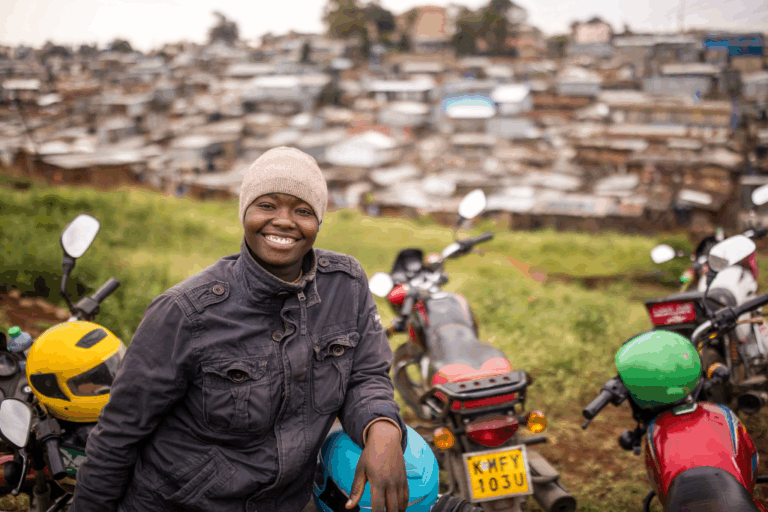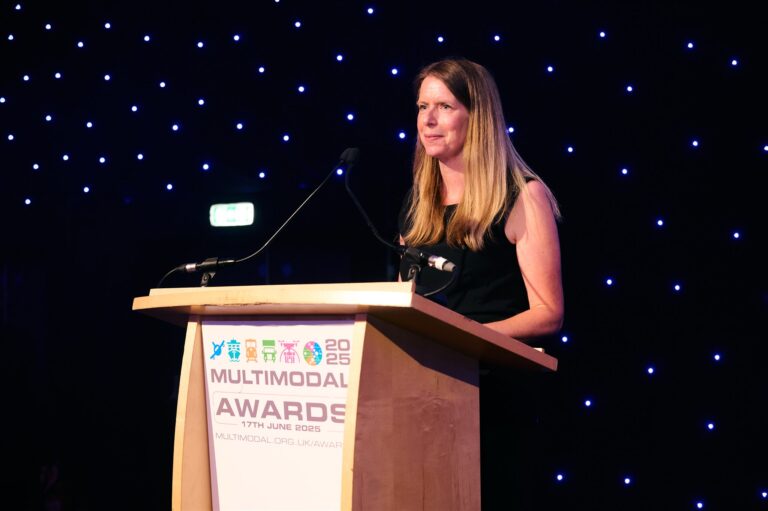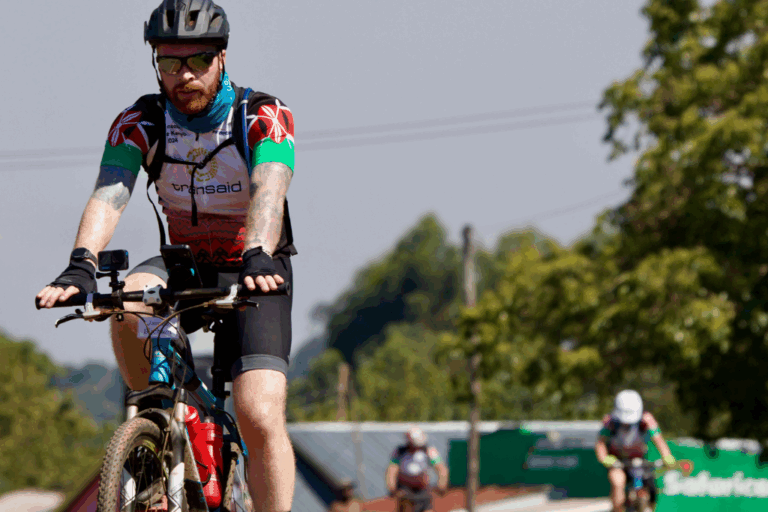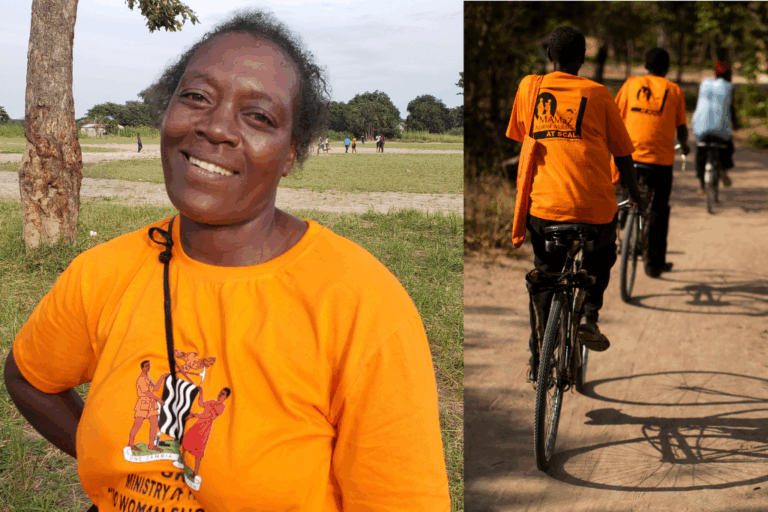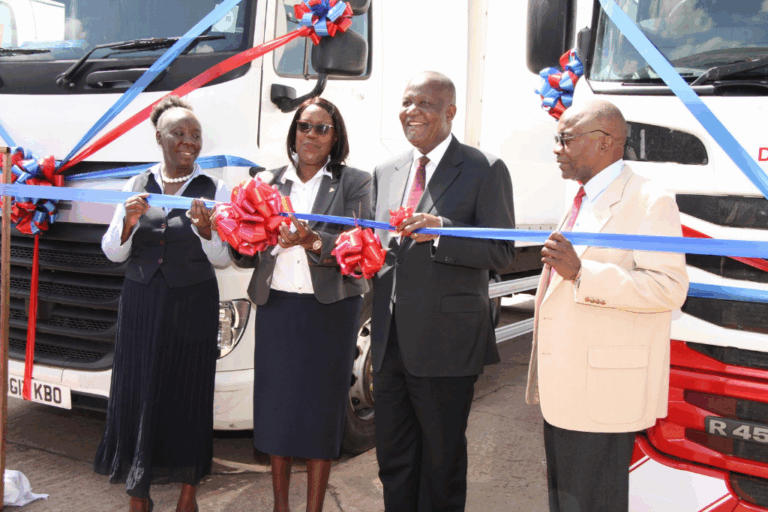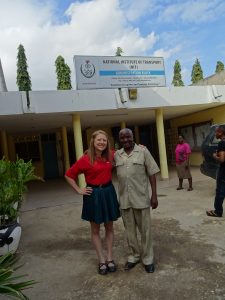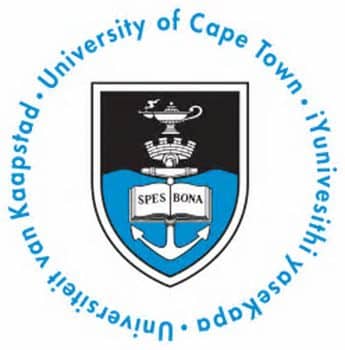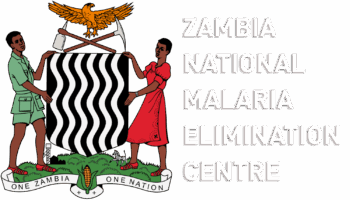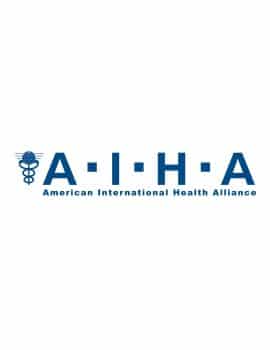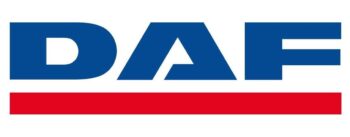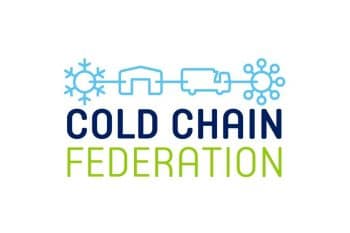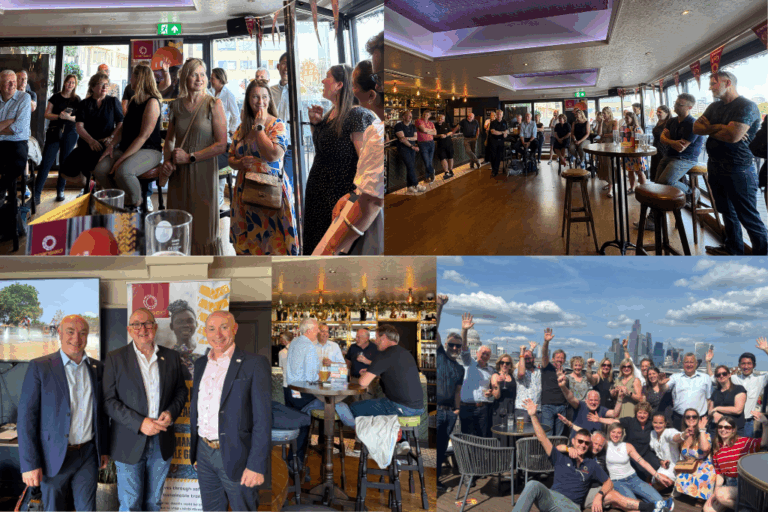
News

The reality of a Transaid secondee
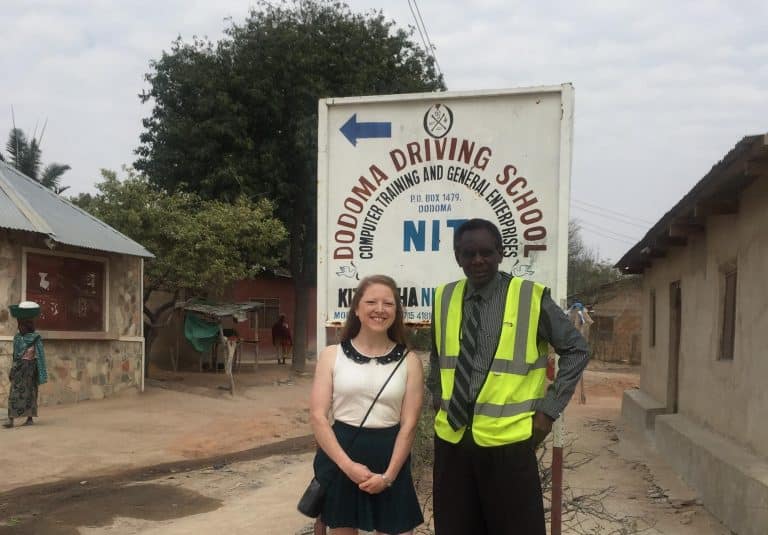
Anna Chaplin, a management trainee from XPO Logistics, spent six months in Tanzania as a Transaid secondee. As Anna finished the placement, we talked about what shocked her, what delighted her, and the important role she played in transforming and improving road safety.
You are finishing the secondment with Transaid – how are you feeling?
I am currently having very mixed emotions about the end of my time in Tanzania, part of me is excited to go home to see all my friends and family, however a greater part of me is struggling to comprehend I will not be waking up in Tanzania any more. The experience I have had over the last six months has been amazing. The people are so friendly and welcoming and the country is beautiful. The work that I have been doing is so worthwhile and I feel like have been working towards much needed improvements that will hopefully save lives.
How did the secondment come about?
I am currently on XPO Logistics Fast Track Talent Program (FTTP), which consists of four six month placements within different areas of the company. For the last three years XPO has had a link with Transaid providing one candidate from the FTTP to work on the professional driver training programme in Tanzania. When the opportunity arose to apply this year I jumped at the chance – the work that Transaid does has such positive impacts and I felt it would be a very unique placement that would be very rewarding.
What did it involve?
During my time in Tanzania I have been working at the National Institute of Transport in Dar es Salaam. The institute teaches many courses including bachelor and post graduate degrees; in transport related subjects. As well as the longer courses it has a variety of professional driver training courses which is the area that I have been working in. Road accidents are one of the highest causes of death in Tanzania and it is obvious why when you see the traffic on the roads. Increased professional driver training is a positive step towards better educated road users and increased road safety.
During my six months at NIT I have been highly focused on increasing the reporting mechanisms to have a potential impact in many different areas. Through better reporting the communication between departments at NIT and also NIT and Transaid can be increased to make the professional driver training programmes more efficient. The main aim is to highlight issues and concerns early enough to implement strategies to avoid any negative impact on the training that is delivered. For example, if someone is able to raise an issue regarding a vehicle early enough, steps can be taken to repair any faults before it gets to a stage that the vehicle cannot be used for training – increasing the vehicle utilisation rate, which is very important given the limited resourced that are available.
My roles has involved working closely with the transport safety and environmental studies department (TSES) and senior management at NIT, including the rector and deputy rector for academics, research and consultancy. I have also had great opportunities to observe the training that not only takes place at NIT but also at a zonal centre in Dodoma (the capital of Tanzania).
I have been given other responsibilities including attending PSV and HGV committee meetings at NIT, where the exam results are discussed. I have also been involved in many meetings that have provider a wider knowledge of the other road safety projects that Transaid are involved in and the impact the work is having on a larger scale.
And achievements?
The relevant departments now have the tools needed to continue and develop reporting effectively. Amongst the many templates that I have helped to create I am particularly happy with the driving licence database that has been implemented. Also, NIT now has an up to date driving licence database for all their trainers.
How will the work make a difference?
With increased accurate reporting the professional driver training programmes should be able to operate at a high standard. The aim is that, through improving the reporting, the service to the students will be increased, this will not only produce good professional drivers, but also encourage people to choose NIT to do further driver training. All these facts should have a very positive impact on the overall road safety, not only Tanzania, and hopefully reduce the amount of fatalities associated with road accidents.
What has been the best moment of the secondment?
On a professional level, working with people who have passion and enthusiasm to better themselves and gain more knowledge about driver training has been really good. When I visited Dodoma and spent a lot of time with the students undertaking PSV and HGV training I was fascinated by their eagerness to learn and develop. Seeing the passion that people have to improve is such a wonderful thing and it really emphasises the importance of developing the training programs to make sure that the students are getting the highest standard of tuition.
On a personal level, I had an amazing holiday with my family where we visited Selous National Park followed by Zanzibar. Tanzania has a wealth of beautiful scenery and wildlife, going on a Safari has to be one of the best experiences of my life. Zanzibar’s coast line is truly spectacular and the immaculate coral reefs make snorkelling so enjoyable. (Also on my trip to Zambia I saw Rhinos which was a huge ambition!)
And the worst?
My two cases of Malaria were probably the worst moments of my time in Tanzania. Being ill while working abroad is not the best situation and Malaria is not pleasant (especially the fevers along with the high temperatures here). However everyone not only at NIT but Transaid and XPO were really supportive and made the experience much easier to handle, I did not feel alone at any point.
What surprised you most?
The road usage was a huge shock when I first arrived in Tanzania. While I was aware that the death rates through road accidents were very high, it did not prepare me for what is considered normal road usage. It is very common for motorcycle taxis (bodabodas) and bajajis (motorised rickshaws) to travel on the wrong side of the road – driving head on into oncoming traffic. The sheer volume of traffic in Dar es Salaam is also unbelievable, travelling around the city can take a lot longer than you would expect as it is normal to sit still in traffic for long periods of time. During my first few weeks in Dar I saw an accident on at least half of the journeys that I took around the city. It makes you realise how important the work that Transaid and NIT are doing is.
Would you recommend doing a secondment to other people?
I would certainly recommend this secondment to others, the experience is a once in a life time. While the work environment can be challenging to adapt to at times, the people are amazingly friendly and welcoming and the country is beautiful, but most importantly the work is so essential that it makes you feel like you are making a significant difference.
How can organisations and individuals get involved?
NIT is always keen to develop the skills of its trainers, many organisations provide trainers to come to perform training of trainers, which is vitally important to ensure that that the students here are getting the highest level of tuition possible.
What does the future involve?
I hope that for the future of NIT the reporting is sustained and continues to evolve to provide clear communication between the parties and increase the effectiveness of the driver training programs.
Personally I will be returning to XPO Logistics to complete my final placement on the fast track talent program. I hope that in the future I can keep in contact with many people at Transaid and NIT to see the developments that take place. I have become very invested with the success of NIT and I would definitely like to visit in the future to see how everything has developed.
Recent Posts

